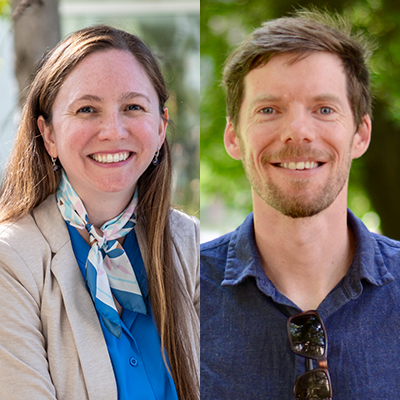RGMA Scientists Receive DOE Early Career Awards
Two university scientists recently received funding for their RGMA-focused research as a part of the U.S. Department of Energy (DOE) Office of Science’s Early Career Research Program.
Christina Patricola of Iowa State University aims to improve the resilience of North American coastal systems to climate change by understanding the atmospheric and oceanic controls on historical and future tropical cyclone characteristics. Her project, “Variability and Change in Tropical Cyclone Characteristics: Coupled Atmosphere-Ocean Drivers and Coastal Impacts,” will quantify:
- how local-scale processes and atmosphere-ocean interactions shape tropical cyclone intensity in a changing climate
- the primary large-scale physical drivers that control the spatial and temporal statistics of landfalling tropical cyclones
- coastal impacts due to storm surge, heavy precipitation, and strong winds associated with tropical cyclones and sea-level rise.
Meanwhile, Trevor Keenan of the University of California-Berkeley is looking at the role that ecosystem water use plays in determining surface water availability, streamflow, and society’s water resources. His project, “Extreme Drought, Heat and Wildfire Impacts on Future Coastal Water Relations,” will measure the impact of specific extremes on water relations of the coastal western United States. It will integrate machine learning, earth system models, and emulators with distributed sensor networks, such as AmeriFlux.
Combining both the water and carbon cycles with associated uncertainties, Keenan’s work can improve understanding of the relationship between coastal ecosystem function and current and future water resources.
Now in its 11th year, DOE’s Early Career Research Program is designed to bolster the nation’s scientific workforce by providing support to exceptional researchers during crucial early career years, when many scientists do their most formative work.
The research grants are planned for five years and will cover salary and research expenses. Awardees were selected from a large pool of university- and national laboratory-based applicants.

